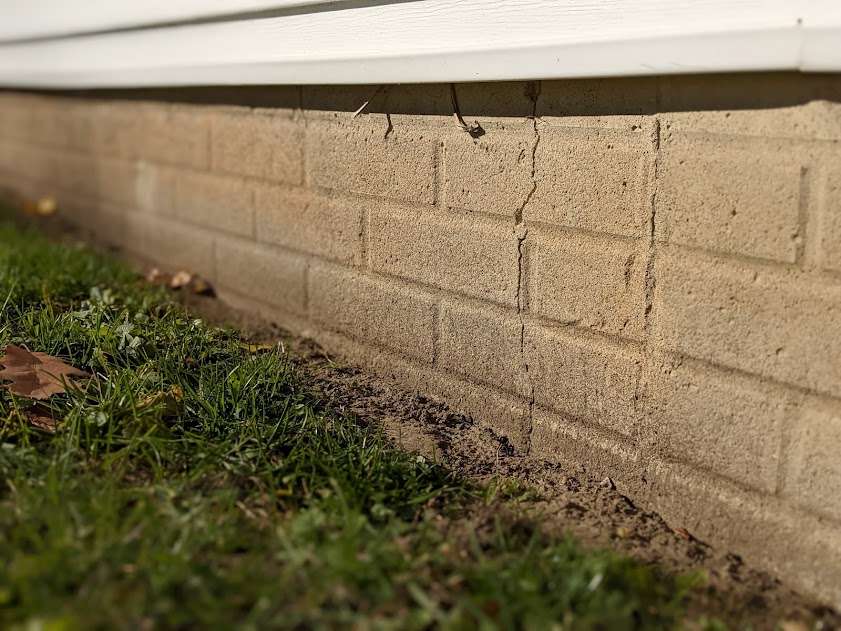To stop foreclosure in Texas, file a lawsuit and obtain a restraining order from the court. By doing so, you can delay the lender from taking your property and buy yourself some time.
Understanding Foreclosure
Foreclosure can be a distressing and overwhelming experience for homeowners. Understanding the process and the impact it can have on your life is crucial when facing the possibility of losing your home. In this section, we will delve into the details of foreclosure, including what it entails, its consequences for homeowners, the foreclosure process, and common reasons for foreclosure.
What is foreclosure?
Foreclosure is a legal process in which a lender takes possession of a property due to the borrower’s failure to make mortgage payments. When homeowners fall behind on mortgage payments, the lender has the right to initiate foreclosure proceedings to recover the loan amount.
The impact of foreclosure on homeowners
Foreclosure can have severe consequences for homeowners, both financially and emotionally. It not only results in the loss of home and shelter but also leads to a significant negative impact on credit scores. This can make it challenging to secure future loans or find suitable housing options.
Furthermore, dealing with the stress and uncertainty of foreclosure can take a toll on mental health and overall well-being. It is essential to be aware of these potential consequences and take appropriate steps to prevent foreclosure.
The foreclosure process
The foreclosure process varies depending on the state and the terms outlined in the mortgage agreement. Generally, it involves several stages, including missed payments, demand or notice of default, acceleration of the loan, and, finally, the actual foreclosure sale or auction.
During the process, the homeowner may have opportunities to resolve the delinquency and avoid foreclosure through options like loan modification, forbearance, or repayment plans. It is crucial to familiarize yourself with the foreclosure process specific to your state and seek professional guidance to explore available alternatives.
Common reasons for foreclosure
Foreclosure can happen due to various reasons, and understanding these factors can help homeowners take proactive measures to prevent it. Some common reasons for foreclosure include:
- Loss of job or reduction in income
- Excessive debt and financial mismanagement
- Medical emergencies or unexpected expenses
- Divorce or separation
- Adjustable-rate mortgages causing payment increase
- Property value depreciation
It is crucial to identify the reasons contributing to your financial difficulties and explore options to address them effectively. Seeking assistance from financial advisors or housing counseling agencies can provide valuable guidance in navigating through these challenging situations.
By understanding what foreclosure entails, its impact on homeowners, the foreclosure process, and common reasons leading to foreclosure, you can equip yourself with the necessary knowledge to take proactive steps to prevent it. In the upcoming sections, we will explore various strategies and resources available to stop foreclosure and find a viable solution to financial hardship.
Reinstatement As A Solution
What is a reinstatement?
A reinstatement is a potential solution for homeowners facing foreclosure. It is the simplest way to stop foreclosure proceedings by paying the total amount owed to the mortgage company. Essentially, the homeowner requests the amount required to bring the mortgage current and pays it in full. This includes any past-due payments, fees, and associated charges.
Benefits of a reinstatement
Opting for a reinstatement offers several benefits to homeowners. Firstly, it allows you to stop foreclosure and regain control of your property. By paying off the total amount owed, you eliminate the risk of losing your home. Additionally, a reinstatement can help repair your credit score since you’re bringing your mortgage payments up to date.
How to request a reinstatement from the mortgage company
Requesting a reinstatement from your mortgage company involves a few simple steps:
- Contact your mortgage company directly to request the total amount owed for reinstatement. They will provide you with an itemized breakdown of the outstanding balance, including any fees or penalties.
- Once you have the reinstatement amount, make arrangements to pay it in full before the established deadline. This usually involves a certified check or a wire transfer.
- Ensure that you keep proof of your payment, such as a receipt or bank statement, to provide evidence of your reinstatement.
Important considerations before opting for a reinstatement
Before deciding on a reinstatement, there are a few factors you should consider:
- Evaluate your financial situation to determine if you can afford the full reinstatement amount. If not, other foreclosure prevention options may be more suitable.
- Understand the terms and conditions set by your mortgage company for the reinstatement process. This includes any associated fees, deadlines, and potential consequences if payment is not made on time.
- Consult with a foreclosure prevention expert or housing counselor to explore all available options and determine the best course of action for your specific circumstances.
Remember, reinstatement can be an effective way to stop foreclosure, but it may not be feasible for everyone. Assess your financial capabilities and consult with professionals to make an informed decision on the best solution to save your home.
Negotiating With Your Lender
The importance of open communication
In order to stop foreclosure, it is crucial to maintain open communication with your lender. This means actively engaging in conversations and negotiations to find a solution that works for both parties. By being proactive and transparent, you can demonstrate your commitment to resolving the issue and increase the chances of reaching a favorable outcome.
Steps to negotiate with your lender
When negotiating with your lender, it is important to follow a systematic approach. Here are the steps you can take:
- Evaluate your financial situation: Before approaching your lender, assess your financial situation thoroughly. This includes understanding your income, expenses, debts, and assets. Having a clear picture of your finances will help you present a more compelling case during negotiations.
- Prepare a hardship letter: A hardship letter is a written document that explains the reasons behind your financial difficulties. It should be concise, and honest, and include any supporting documents such as medical bills or job loss notices. This letter will provide your lender with a better understanding of your circumstances.
- Propose a repayment plan: Based on your financial evaluation, propose a realistic repayment plan to your lender. This may involve spreading out missed payments over a certain period or modifying the terms of your loan to make it more manageable for you.
- Be persistent: Negotiations can be a lengthy process, so be prepared to follow up with your lender regularly. Stay persistent and keep communication lines open. Patience and perseverance can make a significant difference in reaching a successful resolution.
Seeking a loan modification
A loan modification is one of the options to consider when negotiating with your lender. It involves making changes to the terms of your mortgage to make it more affordable. This can include reducing the interest rate, extending the loan term, or even forgiving a portion of the principal. To explore this option, you will need to provide your lender with a detailed proposal outlining why a loan modification would be beneficial for both parties.
Applying for a forbearance
Another avenue to explore is applying for a forbearance agreement. This temporary solution allows you to temporarily suspend or reduce your mortgage payments for a specified period. However, it is important to note that this is not a long-term solution. Make sure to discuss the terms and conditions of the forbearance agreement with your lender to ensure a smooth transition back to regular payments.
Consulting a HUD-approved counseling agency
When dealing with the complexities of foreclosure, seeking professional help can make a significant difference. HUD-approved counseling agencies provide free or low-cost services to homeowners facing foreclosure. These agencies can guide you through the negotiation process, help you understand your options, and provide valuable insights and resources to help you stop foreclosure effectively.
Remember, negotiating with your lender requires proactive communication, thorough preparation, and a willingness to explore different options. By following these steps and seeking assistance when needed, you can increase your chances of successfully stopping foreclosure and finding a solution that works for you.
Exploring Foreclosure Alternatives
When facing the possibility of foreclosure, it’s crucial to remember that there are alternatives available to help you avoid losing your home. Exploring foreclosure alternatives can give you the opportunity to find a solution that works best for your individual circumstances. In this article, we will discuss three common alternatives to foreclosure: Deed in lieu of foreclosure, short sale options, and other foreclosure alternatives available.
Deed in lieu of foreclosure
One foreclosure alternative you might consider is a deed in lieu of foreclosure. This option involves voluntarily transferring the ownership of your property back to the lender in exchange for the cancellation of your mortgage debt. It can be an effective solution for homeowners who are unable to sell their property through a traditional sale or are facing financial hardship.
Short sale options
Another alternative to foreclosure is a short sale. A short sale occurs when you sell your property for less than the outstanding balance on your mortgage. In this scenario, the lender agrees to accept the proceeds from the sale as payment in full, forgiving the remaining debt. A short sale can be a viable option for homeowners who owe more on their mortgage than their property is worth and are unable to keep up with payments.
Other foreclosure alternatives available
In addition to a deed in lieu of foreclosure and short sale options, there are other alternatives to consider. Loan modification, for example, involves negotiating with your lender to modify the terms of your mortgage, such as lowering interest rates or extending the repayment period. Forbearance agreements allow you to temporarily suspend or reduce your mortgage payments while you get back on your feet financially.
Deed in lieu of foreclosure
| Pros | Cons |
|---|---|
|
|
Short sale options
| Pros | Cons |
|---|---|
|
|
Other foreclosure alternatives available
| Pros | Cons |
|---|---|
|
|
Exploring foreclosure alternatives is an important step in preventing foreclosure and preserving your home. Consider the pros and cons of each alternative and consult with a professional to determine the best course of action for your situation.
Filing A Lawsuit To Delay Foreclosure
Understanding the legal process in Texas
If you are facing foreclosure in Texas, it is crucial to understand the legal process involved. In Texas, most loans are non-judicial, which means that the bank does not have to take the foreclosure case to court. This streamlined process allows the lender to proceed with the foreclosure without seeking court approval. However, this does not mean that you are left without options. One effective way to stop and delay foreclosure in Texas is by filing a lawsuit and obtaining a restraining order.
How to file a lawsuit to delay foreclosure
Filing a lawsuit to delay foreclosure can be a complex and time-sensitive process. However, it can provide you with the opportunity to gather your finances, explore alternatives, and avoid losing your home. Here are the steps you can take to file a lawsuit in Texas:
- Gather all the necessary documents related to your mortgage and foreclosure proceedings.
- Consult with a foreclosure defense attorney who specializes in Texas foreclosure laws.
- Prepare a complaint outlining the reasons for the lawsuit and the relief you are seeking.
- File the complaint with the appropriate court in your county.
- Pay the required filing fees and serve the complaint to the lender or their representative.
- Attend the initial court hearing and present your case to the judge.
- Follow the court’s instructions and deadlines for further proceedings.
It is important to note that the specific steps may vary depending on your individual circumstances and the court’s requirements. Seeking guidance from a foreclosure defense attorney can help ensure that you follow the correct procedures and increase your chances of success.
Obtaining a restraining order
When filing a lawsuit to delay foreclosure, obtaining a restraining order can be a crucial step in protecting your rights as a homeowner. A restraining order, also known as an injunction or an order to show cause, is a legal order issued by the court that temporarily stops the foreclosure process until the case is resolved. To obtain a restraining order, you must provide sufficient evidence to the court that demonstrates the need for immediate action to prevent irreparable harm, such as losing your home.
It is advisable to work closely with your foreclosure defense attorney when seeking a restraining order. They will guide you through the process and help you present a strong case to the court. Keep in mind that restraining orders are not guaranteed and their issuance depends on various factors, including the strength of your arguments and the judge’s discretion.
Hiring a foreclosure defense attorney
Given the complex nature of foreclosure lawsuits and the potential consequences of losing your home, it is highly recommended to hire a skilled foreclosure defense attorney. An experienced attorney will have a deep understanding of Texas foreclosure laws and can provide you with valuable legal advice and representation throughout the process. They will assess your case, help you explore alternatives to foreclosure, draft, and file necessary legal documents, and represent your interests in court.
When hiring a foreclosure defense attorney, it is important to choose someone with a proven track record in handling foreclosure cases in Texas. Look for attorneys who specialize in foreclosure defense and have a strong understanding of local laws and court procedures. You can ask for recommendations from trusted sources, conduct online research, and schedule consultations to find the right attorney for your needs.
Filing a lawsuit to delay foreclosure can be a complicated and challenging process. However, with the guidance of a skilled foreclosure defense attorney and a clear understanding of the legal process, you can increase your chances of successfully stopping or delaying foreclosure and protecting your home.
Staying Informed: Texas-Specific Strategies
Differences between judicial and non-judicial foreclosure in Florida
In Florida, foreclosures can proceed through either a judicial or non-judicial process. Understanding the differences between the two can help homeowners navigate the foreclosure process more effectively.
State-specific laws and regulations
When it comes to stopping foreclosure in Texas, it’s crucial to be aware of the state-specific laws and regulations that govern the process. These laws vary from state to state, so it’s essential for homeowners to familiarize themselves with the specific regulations in Texas.
Important deadlines and timelines to be aware of
Navigating the foreclosure process requires homeowners to understand the important deadlines and timelines they need to be aware of. In Texas, specific deadlines exist for various stages of the foreclosure process, and missing these deadlines can have significant consequences.
Resources for homeowners in Texas
Fortunately, homeowners in Texas have access to various resources to help them understand and navigate the foreclosure process. These resources can provide valuable information and guidance, ensuring homeowners have the support they need during this challenging time.
By staying informed about Texas-specific strategies, homeowners can take proactive steps to stop foreclosure and protect their homes. Understanding the differences between judicial and non-judicial foreclosure in Texas, being aware of state-specific laws and regulations, knowing important deadlines and timelines, and accessing available resources can significantly increase homeowners’ chances of successfully stopping foreclosure.
Avoiding Foreclosure Scams
Dealing with the stress of foreclosure can leave homeowners vulnerable to scams. Foreclosure scams are unfortunately prevalent, but learning how to identify and avoid them can help protect your financial interests. In this section, we will discuss the different types of foreclosure scams to watch out for, warning signs of a foreclosure scammer, and provide you with tips to protect yourself from scams.
Types of Foreclosure Scams to Watch Out For
Foreclosure scammers are constantly coming up with new tactics to take advantage of distressed homeowners. It’s important to be aware of the different types of scams that exist so that you can avoid falling victim to them. Some common foreclosure scams include:
| 1. Loan Modification Scams | Scammers promise to negotiate with your lender to modify your loan terms, but they often charge hefty upfront fees and deliver little to no results. |
| 2. Phantom Help Scams | Scammers pose as foreclosure assistance professionals and request payment for services they never provide. They may even ask for your personal information, putting you at risk of identity theft. |
| 3. Rent-to-Own Scams | Scammers claim to offer a rent-to-own arrangement where you can stay in your home by paying rent to them instead of the bank. In reality, they have no intention of transferring ownership and may kick you out once they’ve received enough rent. |
| 4. Equity Stripping Scams | Scammers target homeowners with equity in their property by convincing them to sign over their property deed. They may promise to help you avoid foreclosure, but ultimately, they take ownership of your home and leave you with nothing. |
Warning Signs of a Foreclosure Scammer
Foreclosure scammers often use deceptive tactics to gain the trust of homeowners in distress. Being able to recognize warning signs can help you avoid falling victim to these scams. Some common warning signs of a foreclosure scammer include:
- Promising guaranteed results or a “secret” way to stop foreclosure.
- Requesting upfront fees for their services.
- Pressuring you to sign documents without fully understanding them.
- Asking for personal and financial information over the phone or email.
- Refusing to provide references or proof of past successful cases.
- Using high-pressure sales tactics to convince you to act quickly.
Tips to Protect Yourself from Scams
Protecting yourself from foreclosure scams requires vigilance and knowledge. Here are some essential tips to keep in mind:
- Research and verify the legitimacy of any company or individual offering foreclosure assistance before providing them with any personal or financial information.
- Work with reputable and licensed professionals, such as attorneys or HUD-approved housing counselors, who have a proven track record of helping homeowners navigate the foreclosure process.
- Avoid paying upfront fees for foreclosure assistance as legitimate organizations typically only charge fees once they have provided a service.
- Be cautious of anyone who guarantees to stop the foreclosure process, as every case is unique and outcomes cannot be guaranteed.
- Read and understand all documents before signing them, and seek legal advice if needed.
- Trust your instincts. If something feels off or too good to be true, it’s best to walk away and seek assistance elsewhere.
By staying informed and being cautious, you can protect yourself from falling victim to foreclosure scams. Remember to reach out to reputable professionals and organizations for assistance to ensure you are making informed decisions throughout the foreclosure process.
Rebuilding Your Credit After Foreclosure
Impact of Foreclosure on Credit Score
When facing foreclosure, one of the major concerns for homeowners is the impact it will have on their credit score. Unfortunately, foreclosure can have a significant negative impact on your credit score and make it difficult for you to secure loans in the future.
A foreclosure can lower your credit score by up to 200 points, depending on your credit history and the severity of the foreclosure. This drop in credit score can make it challenging to qualify for new credit cards, mortgages, or even car loans. It can also result in higher interest rates and unfavorable terms when you do qualify for credit.
Steps to Rebuild Credit After Foreclosure
Rebuilding your credit after foreclosure may seem like a daunting task, but with the right steps, it is possible to improve your credit score over time. Here are some steps you can take:
- Pay off any remaining debts: Start by paying off any outstanding debts you may have. This will show lenders that you are committed to repaying your obligations.
- Establish a new line of credit: Consider applying for a secured credit card or a small personal loan. Regularly making payments on time and in full will demonstrate your ability to manage credit responsibly.
- Monitor your credit report: Regularly check your credit report for any errors or inaccuracies. Dispute any incorrect information and ensure that all your positive financial habits are accurately reflected.
- Keep credit utilization low: Aim to keep your credit utilization ratio below 30%. This means using only a small percentage of your available credit. High credit utilization can negatively impact your credit score.
- Pay bills on time: Paying your bills on time is crucial to rebuilding your credit score. Set up automatic payments or reminders to ensure you don’t miss any due dates.
Establishing New Financial Habits for Long-Term Stability
Rebuilding your credit after foreclosure isn’t just about improving your credit score, but also about establishing new financial habits for long-term stability. Here are some practices to adopt:
- Create a budget: Track your income and expenses to ensure that you are living within your means. This will help you avoid accumulating debt and improve your financial stability.
- Build an emergency fund: Set aside money for unexpected expenses. Having an emergency fund can prevent you from relying on credit cards or loans in times of financial stress.
- Avoid unnecessary debt: Be cautious about taking on new debt. Prioritize essential purchases and avoid unnecessary expenses that could lead to financial strain.
- Seek financial guidance: Consider working with a financial advisor or credit counseling agency. They can provide valuable guidance on managing your finances and rebuilding your credit.
By following these steps and adopting healthy financial habits, you can gradually rebuild your credit after foreclosure and work towards a more secure financial future.
Seeking Professional Help
When to consider hiring a foreclosure attorney
If you’re facing foreclosure, it’s important to assess whether hiring a foreclosure attorney is the right move for you. While you may be unsure about when exactly to seek professional help, there are certain situations that indicate it’s time to consult a foreclosure attorney. Here are a few scenarios in which you should consider hiring a foreclosure attorney:
- You have received a notice of default: When you receive a notice of default from your lender, it means that you are behind on your mortgage payments and the foreclosure process has started. This is a critical time to seek legal assistance to protect your rights and explore potential alternatives.
- You are having difficulty negotiating with your lender: If you have been trying to negotiate with your lender on your own but have not been successful, it may be time to bring in a foreclosure attorney. They can advocate for you and help you navigate the negotiation process more effectively.
- You have been served with a foreclosure lawsuit: If your lender has filed a lawsuit against you, it’s crucial to seek legal representation immediately. A foreclosure attorney can help you understand the legal process, respond to the lawsuit, and potentially find a resolution that prevents the foreclosure.
Finding a reputable foreclosure specialist
When it comes to finding a reputable foreclosure specialist, it’s important to do your due diligence and research before making a decision. Here are a few steps to help you find a reliable foreclosure specialist:
- Ask for recommendations: Start by asking friends, family, or acquaintances who have experienced foreclosure or know someone who has. They may be able to provide recommendations based on their own experiences.
- Check online reviews and ratings: Perform a search for foreclosure specialists in your area and read reviews from previous clients. Pay attention to any negative feedback or complaints and consider the overall rating of the specialist.
- Verify accreditation and credentials: Look for foreclosure specialists who are members of professional organizations or have relevant certifications. This indicates that they have undergone training and adhere to industry standards.
- Schedule consultations: Once you have identified potential foreclosure specialists, schedule consultations to discuss your case and gauge their expertise and professionalism. This will allow you to ask questions and evaluate their level of knowledge and experience.
Questions to ask potential professionals
When meeting with potential foreclosure professionals, it’s essential to ask the right questions to ensure they are a good fit for your needs. Here are some important questions to ask during your consultation:
- How many foreclosure cases have you handled? Understanding their experience level will give you an idea of their expertise in the field.
- What is your success rate in preventing foreclosures? Inquire about their track record in helping clients avoid foreclosure and reach favorable outcomes.
- What strategies do you recommend for my specific situation? A reputable foreclosure professional should be able to provide personalized advice and solutions based on your unique circumstances.
- What are your fees and payment terms? Discuss their fee structure and any additional costs associated with representing you in your foreclosure case.
- Can you provide references from past clients? Asking for references allows you to hear about other clients’ experiences and satisfaction with the professional’s services.
Understanding the costs involved
Before hiring a foreclosure professional, it’s crucial to have a clear understanding of the costs involved. Here are some potential costs to consider:
- Attorney’s fees: Foreclosure attorneys may charge a flat fee or an hourly rate for their services. Clarify their fee structure and whether any additional fees may apply.
- Court and filing fees: Depending on the legal proceedings involved, there may be court and filing fees that you need to cover.
- Other legal expenses: Certain situations may require additional legal expenses such as expert witness fees, document retrieval costs, or deposition fees. Discuss these potential expenses with your foreclosure professional.
Remember to carefully review any contracts or agreements before signing them and ask for clarification on any terms you don’t understand.
By seeking professional help, finding a reputable foreclosure specialist, asking the right questions, and understanding the costs involved, you can effectively navigate the foreclosure process and increase your chances of finding a favorable resolution. Don’t hesitate to reach out to a foreclosure attorney who can guide you through this challenging time and help you protect your home.
Case Studies: Successful Foreclosure Prevention
Real-life examples of homeowners who successfully stopped foreclosure
Stopping foreclosure can be a daunting task, but it is not impossible. Many homeowners have managed to successfully halt the foreclosure process and keep their homes. Let’s take a look at a few real-life examples of homeowners who were able to stop foreclosure and learn from their experiences.
Strategies and actions implemented by these homeowners
The homeowners who successfully stopped foreclosure utilized various strategies and took specific actions to turn their situation around. Here are some of the strategies and actions they implemented:
- Seeking professional assistance: These homeowners understood the importance of seeking help from foreclosure prevention experts, such as housing counselors and foreclosure defense attorneys. These professionals provided guidance, negotiated with lenders on their behalf, and helped them understand their rights and options.
- Communicating with the lender: Open and consistent communication with the lender was crucial for these homeowners. They proactively reached out to their lenders, explained their financial hardships, and explored options for loan modifications, repayment plans, or forbearance agreements.
- Gathering and organizing financial documents: These homeowners were diligent in gathering and organizing all necessary financial documents. They provided complete and accurate information to their lenders, demonstrating their willingness to work towards a solution and proving their eligibility for certain foreclosure prevention programs.
- Exploring alternative funding sources: To address their financial difficulties, some homeowners tapped into alternative funding sources. They sought assistance from nonprofit organizations, state and federal programs, or even borrowed from friends or family to bring their mortgage payments current.
- Filing for bankruptcy: In certain situations, bankruptcy became a viable option for these homeowners. By filing for bankruptcy, they gained the immediate protection of an automatic stay, which temporarily halted the foreclosure process, giving them time to reorganize their finances and potentially negotiate with lenders.
Lessons learned from their experiences
These successful foreclosure prevention case studies provide valuable lessons for homeowners facing a similar situation. Here are some key lessons learned from their experiences:
- Take immediate action: Responding quickly to foreclosure notices and contacting a foreclosure prevention professional as soon as possible is crucial to increasing the chances of success.
- Do thorough research: Homeowners should invest time in researching their rights, foreclosure laws, and available assistance programs. This knowledge equips them to make informed decisions and effectively navigate the foreclosure prevention process.
- Be proactive and persistent: Taking proactive measures, such as initiating communication with the lender, following up on progress, and providing requested documentation in a timely manner, shows commitment and determination in resolving the foreclosure issue.
- Consider all available options: Homeowners should explore all possible solutions and programs available to them, such as loan modifications, repayment plans, forbearance agreements, or even bankruptcy, to find the best fit for their individual circumstances.
- Seek professional help: Enlisting the assistance of foreclosure prevention experts greatly increases the chances of a successful outcome. Housing counselors and foreclosure defense attorneys have the knowledge and experience to guide homeowners through the complex foreclosure prevention process and advocate on their behalf.
By learning from these successful foreclosure prevention cases, homeowners can equip themselves with the necessary tools and strategies to stop foreclosure and protect their homes.
Government Assistance Programs
Overview of government programs for foreclosure prevention
If you’re facing foreclosure and struggling to keep up with your mortgage payments, don’t lose hope. There are government assistance programs available to help homeowners in such situations. These programs aim to provide relief and support to individuals and families at risk of losing their homes. By understanding the options available to you, you can take proactive steps to prevent foreclosure and secure your home.
Eligibility criteria for assistance programs
Government assistance programs for foreclosure prevention have specific criteria that applicants must meet to qualify for help. The eligibility requirements may vary depending on the program, but they typically take into consideration factors such as income, mortgage payment history, and financial hardship. It’s important to carefully review the specific criteria for each program to determine your eligibility.
How to apply for government assistance
Applying for government assistance programs for foreclosure prevention is a crucial step in stopping the foreclosure process. To start the application process, you need to gather all the necessary documentation, including proof of income, bank statements, tax returns, and details of your mortgage. Additionally, it is recommended to consult a HUD-approved counseling agency for guidance and support throughout the application process.
Once you have all the required documents, you can submit your application to the relevant government agency or housing counseling agency. Be sure to double-check the application requirements and provide accurate information to avoid any delays in the review process. It’s essential to follow up on your application to ensure that it is being processed.
Remember, time is of the essence when dealing with foreclosure. The sooner you take action and apply for government assistance, the better your chances of stopping foreclosure and finding a solution to keep your home. Don’t hesitate to reach out for help and explore the various government programs designed to assist homeowners in need. With the right support and resources, you can navigate through this challenging period and find a way to prevent foreclosure.
Resources For Homeowners
Online resources for foreclosure prevention
If you are facing foreclosure and need assistance, there are several online resources available that can provide valuable information and guidance. These resources can help you understand your rights as a homeowner, learn about foreclosure prevention options, and connect you with professionals who can offer expert advice. Here are some online resources you can explore:
- Lawsuit Legal: Provides information on how to stop foreclosure in Texas, including the option of filing a lawsuit to delay the foreclosure process.
- HUD – Texas: Offers guidance on default and foreclosure prevention, as well as a list of housing counseling agencies that can provide assistance.
- Facing Foreclosure Texas: Provides a complete guide on how to stop foreclosure in Texas, covering topics such as bankruptcy, foreclosure process, and tax lien foreclosure.
Local community resources and organizations
In addition to online resources, your local community may have resources and organizations that can help you prevent foreclosure. These organizations often offer counseling, financial assistance, and other services to homeowners struggling with mortgage payments. Here are some ways you can find local assistance:
- Contact your local housing authority or community development agency for information on foreclosure prevention programs in your area.
- Reach out to non-profit organizations such as Habitat for Humanity or NeighborWorks America that provide housing counseling and foreclosure prevention services.
- Check if your city or county has a foreclosure task force or housing counseling program that can offer guidance and resources.
Additional reading and references
If you want to learn more about foreclosure prevention, there are several books, articles, and guides available that can provide in-depth information on the topic. Here are some recommended readings:
- “Handing Your House Back to the Bank: Better Than Foreclosure?” by Homelight
- “Avoiding Foreclosure: Texas” by HUD
- “Tips for Avoiding Foreclosure” by Texas State Law Library

Credit: www.newlandattorneys.com
Frequently Asked Questions On How To Stop Foreclosure
What Is The Simplest Solution For A Foreclosure?
A reinstatement is the simplest solution for a foreclosure. The homeowner pays the total amount owed to the mortgage company.
How Do You Turn Around A Foreclosure?
To turn around a foreclosure, you can work with your lender, request a forbearance, apply for a loan modification, consult a HUD-approved counseling agency, conduct a short sale, or sign a deed in lieu of foreclosure. Additionally, in Texas, you can delay a foreclosure by filing a lawsuit and obtaining a restraining order.
It’s important to address the situation promptly to avoid losing your home.
How Do I Delay A Foreclosure In Texas?
To delay a foreclosure in Texas, file a lawsuit and obtain a restraining order.
Do Banks Hate Foreclosure?
Banks do not like foreclosures and try to avoid them if possible.
What Is The Simplest Solution For A Foreclosure?
A reinstatement is the simplest solution for a foreclosure, where the homeowner pays the total amount owed to the mortgage company to date.
How Do You Turn Around A Foreclosure?
To turn around a foreclosure, you can work it out with your lender, request a forbearance, apply for a loan modification, consult a HUD-approved counseling agency, conduct a short sale, or sign a deed in lieu of foreclosure.
How Do I Delay A Foreclosure In Texas?
In Texas, you can delay a foreclosure by filing a lawsuit and obtaining a restraining order. Most loans in Texas are non-judicial, meaning the bank doesn’t require court approval for a foreclosure.
Do Banks Hate Foreclosure?
Lenders hate foreclosures because they prefer not to go through with it. According to HUD, it usually takes three to six months after the first missed mortgage payment for foreclosure proceedings to begin.
Conclusion
When facing the possibility of foreclosure, finding a solution can be overwhelming. Fortunately, there are several options available that can help you stop foreclosure and keep your home. One of the simplest solutions is a reinstatement, where you pay the total amount owed to the mortgage company.
However, this can be difficult for many homeowners. Other options include working with your lender, requesting a forbearance, applying for a loan modification, consulting a HUD-approved counseling agency, conducting a short sale, or signing a deed in lieu of foreclosure.
In Texas, filing a lawsuit and obtaining a restraining order can also help delay the foreclosure process. It’s important to remember that lenders generally prefer not to foreclose on properties and are often willing to work with homeowners to find a solution.
By exploring these options and seeking professional guidance, you can take steps to stop foreclosure and protect your home.








